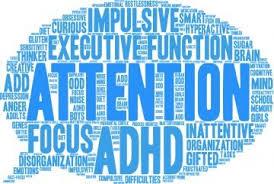Impulsivity, hyperactivity, and inattention are signs of Attention Deficit Hyperactivity Disorder (ADHD), a neurodevelopmental disorder. Effective management strategies are available, despite the fact that ADHD can significantly impede a variety of aspects of life, such as social connections, job productivity, and academic accomplishment. Medication is one of the mainstays of ADHD therapy. However, people with ADHD and their families may find it confusing given the abundance of pharmacological options. We will go over the several medications used to treat ADHD, their mechanisms of action, benefits, possible side effects, and factors to take into account while selecting the best course of action in this thorough guide.
Understanding ADHD Medications:
Generally speaking, there are two types of ADHD medications: stimulants and non-stimulants. For many years, stimulant medications have been the most often used and the best option for treating ADHD. These medications work by increasing brain levels of neurotransmitters, which are essential for motivation, impulse control, and attention. Examples of these neurotransmitters are dopamine and norepinephrine. In contrast to stimulants, non-stimulant medications target distinct neurotransmitters or modes of action. When stimulants are inefficient or poorly tolerated, they are frequently taken into consideration.
Stimulant Medications:
Methylphenidate-Based Medications:
One of the most widely used stimulant medications for ADHD is methylphenidate. Ritalin, Concerta, Daytrana (patch), and Metadate are some of the brands.
Mechanism of Action:
Methylphenidate raises dopamine and norepinephrine levels in the brain by blocking their reuptake.
Benefits
Benefits include increased impulse control, attention, and attentiveness. quick start of the action.
Side Effects:
Lack of sleep, appetite loss, and irritability are typical negative effects.
Adderall, Adderall XR, Vyvanse, and Dexedrine are examples of amphetamine-based medications.
Amphetamine-Based Medications:
Mechanism of Action:
Amphetamine-based medications increase norepinephrine and dopamine levels in the brain, just like methylphenidate does.
Advantages:
Lessens symptoms of ADHD effectively; perhaps acts longer than methylphenidate.
Adverse effects:
This medication may cause insomnia, a decrease in appetite, an increase in heart rate, and abuse.
Non-Stimulating Drugs:
Atomoxetine, often known as strattera, is a selective norepinephrine reuptake inhibitor (SNRI) that has been approved for the treatment of ADHD.
Mechanism of Action:
By inhibiting the reuptake of norepinephrine, atomoxetine raises its levels in the brain.
Advantages:
Non-stimulant option, appropriate for people with a history of substance abuse or who are unable to manage stimulant drugs.
Side effects:
Mood swings, dizziness, and stomach pain are typical side effects.
Alpha-2 adrenergic agonists Guanfacine (Intuniv) and Clonidine (Kapvay) are authorized for the treatment of ADHD, particularly in children and teenagers.
Mechanism of Action:
These medications block the release of particular neurotransmitters by activating alpha-2 adrenergic receptors.
Benefits:
Non-stimulant options may be helpful for people with ADHD and related conditions like anxiety or tics.
Side Effects:
Low blood pressure, sleepiness, and disorientation are possible side effects.
Selecting the Appropriate Drug:
A number of factors need to be carefully taken into account while choosing the best ADHD medicine, including the patient’s symptoms, medical history, comorbid conditions, likely adverse effects, and lifestyle preferences. To develop a customized treatment plan, close collaboration with a medical professional skilled in managing attention deficit disorders is essential. Among the important factors are:
Symptom Overview:
Different medications may be more effective at treating different ADHD symptoms. For example, stimulant medications having a shorter half-life may help people with severe hyperactivity manage their symptoms throughout the day.
Comorbid diseases:
Anxiety, depression, and learning disabilities are common mental health conditions that coexist with ADHD. It may be helpful to select a medication that can treat comorbidities in addition to ADHD symptoms.
Side Effect Profile:
Every medication has a different possible side effect profile. To improve treatment outcomes, it is essential to keep an eye out for any side effects and adjust the dosage or switch medications as needed.
Individual Response:
People’s reactions to medicine can differ greatly from one another. Finding the most efficient and well-tolerated medication regimen may require some trial and error.
Extended Handling:
Since ADHD is a chronic condition, it necessitates extended handling. Consult a healthcare provider on a regular basis to monitor treatment effectiveness, adjust drug dosages, and handle any urgent concerns.
Conclusion:
When used in conjunction with a thorough treatment plan, ADHD medication can significantly reduce symptoms and enhance a person’s quality of life. Navigating the plethora of pharmacological possibilities, however, can be challenging. Making informed decisions requires an awareness of the benefits, drawbacks, side effects, and factors to be taken into account while selecting the right medication. People with ADHD can find a medication regimen that effectively manages their symptoms and enhances their general well-being by collaborating with a qualified healthcare provider.
